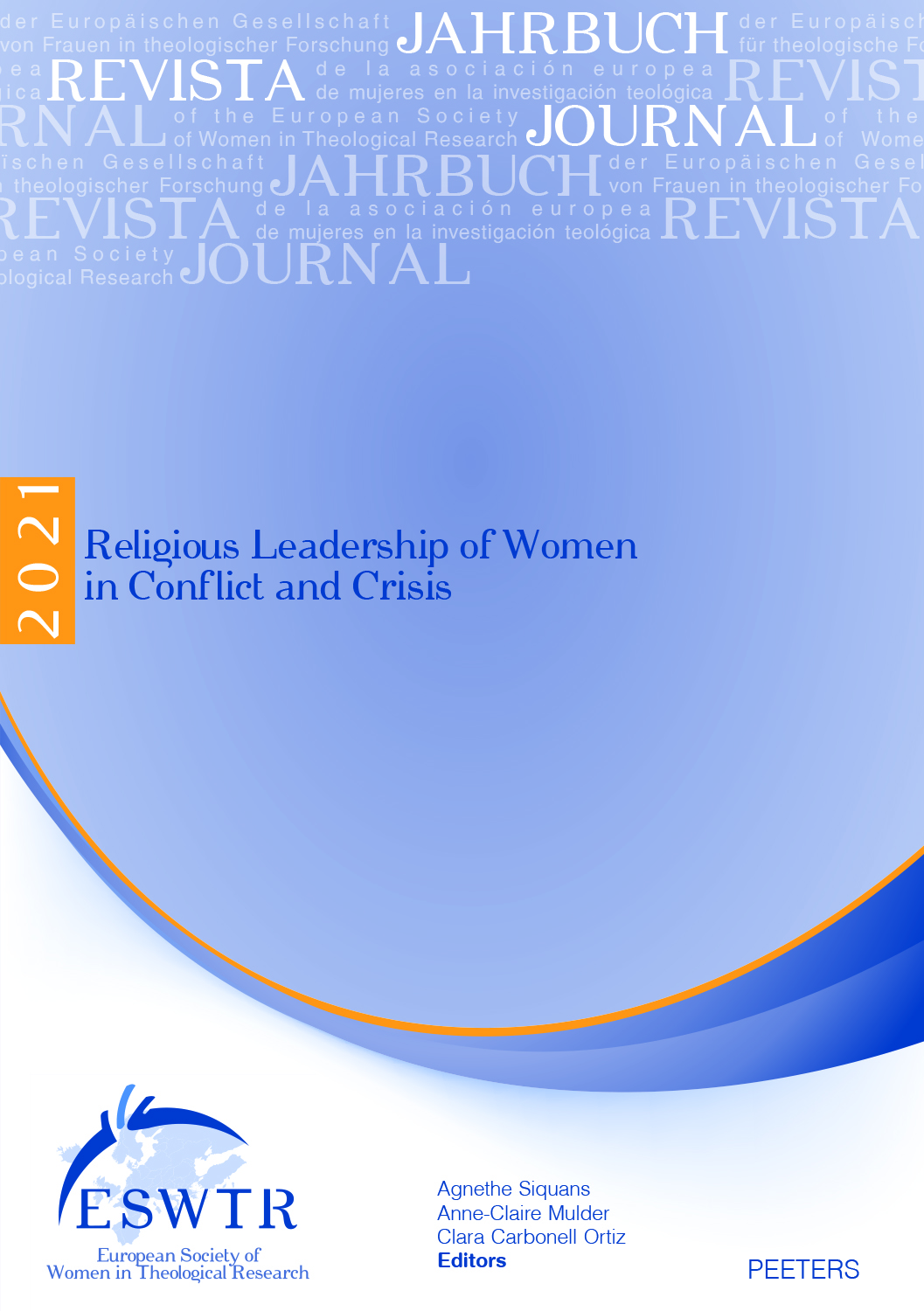 previous article in this issue previous article in this issue | next article in this issue  |

Preview first page |
Document Details : Title: Einblicke in die Forschung über die Herausforderungen der Autonomie von christlichen und muslimischen Frauen Subtitle: Eine Analyse aus interreligiöser Perspektive Author(s): ALABD, Anna Journal: Journal of the European Society of Women in Theological Research Volume: 30 Date: 2022 Pages: 73-88 DOI: 10.2143/ESWTR.30.0.3290962 Abstract : Der Artikel soll einen Einblick in einen Forschungsprozess geben, der sich mit den Konzepten der persönlichen Selbstbestimmung und der moralischen Autonomie sowie deren Verbindung mit dem Geschlecht in der religiösen Tradition des Christentums und Islams im Licht interreligiöser Ethik beschäftigt. Dabei wird die herausfordernde Dimension der Autonomie von christlichen und muslimischen Frauen auf der Basis einer qualitativ-empirischen Studie thematisiert. Die Interviewpartnerinnen werden beispielsweise nach dem Umgang mit traditionellen geschlechterspezifischen Bildern in der eigenen Religion, zur Sexualmoral, zu moralischen Geboten und Verboten befragt. Dadurch können typische ethische Konflikte von Frauen identifiziert werden und die Differenz zwischen patriarchaler Tradition innerhalb der Religion und den Autonomieansprüchen der Frauen aufgezeigt werden. Der interreligiöse Dialog wird dabei als Rahmen für die Interviews sowie deren Analyse genutzt und intendiert durch die Behandlung der Thematik der Autonomie von Frauen eine Verbesserung des Alltagslebens von christlichen und muslimischen Frauen. Den hermeneutischen Schlüssel dafür bildet die interreligiöse Ethik, wie sie von Hansjörg Schmid entwickelt worden ist. So bildet interreligiöse Ethik die Schnittmenge in der Analyse und trägt durch die ausführliche Beschäftigung damit gleichzeitig zu einem besseren Verständnis der Religionen bei. The article aims to provide an insight into the research process dealing with the concepts of personal self-determination and moral autonomy and their connection with gender in the religious tradition of Christianity and Islam in the light of interreligious ethics. In doing so, the challenging dimension of autonomy of Christian and Muslim women is addressed on the basis of a qualitative-empirical study. The interview partners are asked, for example, about how they deal with traditional gender-specific images in their own religion, about sexual morality, moral commandments and prohibitions. In this way, typical ethical conflicts of women can be identified and the difference between patriarchal tradition within the religion and the autonomy claims of women can be shown. The interreligious dialogue is used as a framework for the interviews and their analysis and intends to improve the everyday life of Christian and Muslim women by addressing the issue of women’s autonomy. The hermeneutic key for this is interreligious ethics as developed by Hansjörg Schmid. Thus, interreligious ethics forms the intersection in the analysis and at the same time contributes to a better understanding of the religions by dealing with it in detail. El artículo aborda la cuestión de la ética interreligiosa, sus oportunidades y también sus desafíos. La ética interreligiosa constituye la base de un estudio sobre la autonomía de mujeres cristianas y musulmanas, el cual forma parte de un proyecto de tesis doctoral más amplio. El estudio incluye interrogantes sobre cuáles son las imágenes tradicionales de género en la propia religión, sobre moral sexual, o sobre mandamientos y prohibiciones morales, entre otras. Ello permite identificar conflictos éticos característicos de las mujeres en un contexto interreligioso y arroja diferentes conceptos en torno a la autonomía personal y moral. El diálogo interreligioso fue y es empleado como marco para realizar las entrevistas y para su análisis; asimismo, busca mejorar la vida cotidiana de las mujeres cristianas y musulmanas abordando la cuestión de la autonomía de las mujeres. Este artículo tiene por objeto mostrar la búsqueda de conceptos en torno a la autodeterminación personal y la autonomía moral, así como su conexión con el género en las tradiciones religiosas del cristianismo y el islam a la luz de la ética interreligiosa. |
 |


